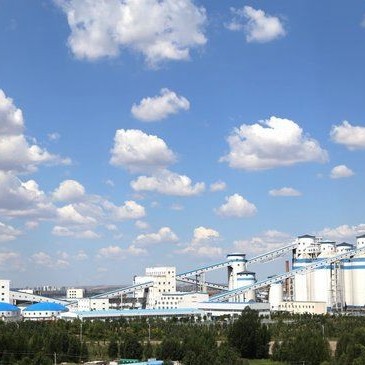
-
 Afrikaans
Afrikaans -
 Albanian
Albanian -
 Amharic
Amharic -
 Arabic
Arabic -
 Armenian
Armenian -
 Azerbaijani
Azerbaijani -
 Basque
Basque -
 Belarusian
Belarusian -
 Bengali
Bengali -
 Bosnian
Bosnian -
 Bulgarian
Bulgarian -
 Catalan
Catalan -
 Cebuano
Cebuano -
 China
China -
 China (Taiwan)
China (Taiwan) -
 Corsican
Corsican -
 Croatian
Croatian -
 Czech
Czech -
 Danish
Danish -
 Dutch
Dutch -
 English
English -
 Esperanto
Esperanto -
 Estonian
Estonian -
 Finnish
Finnish -
 French
French -
 Frisian
Frisian -
 Galician
Galician -
 Georgian
Georgian -
 German
German -
 Greek
Greek -
 Gujarati
Gujarati -
 Haitian Creole
Haitian Creole -
 hausa
hausa -
 hawaiian
hawaiian -
 Hebrew
Hebrew -
 Hindi
Hindi -
 Miao
Miao -
 Hungarian
Hungarian -
 Icelandic
Icelandic -
 igbo
igbo -
 Indonesian
Indonesian -
 irish
irish -
 Italian
Italian -
 Japanese
Japanese -
 Javanese
Javanese -
 Kannada
Kannada -
 kazakh
kazakh -
 Khmer
Khmer -
 Rwandese
Rwandese -
 Korean
Korean -
 Kurdish
Kurdish -
 Kyrgyz
Kyrgyz -
 Lao
Lao -
 Latin
Latin -
 Latvian
Latvian -
 Lithuanian
Lithuanian -
 Luxembourgish
Luxembourgish -
 Macedonian
Macedonian -
 Malgashi
Malgashi -
 Malay
Malay -
 Malayalam
Malayalam -
 Maltese
Maltese -
 Maori
Maori -
 Marathi
Marathi -
 Mongolian
Mongolian -
 Myanmar
Myanmar -
 Nepali
Nepali -
 Norwegian
Norwegian -
 Norwegian
Norwegian -
 Occitan
Occitan -
 Pashto
Pashto -
 Persian
Persian -
 Polish
Polish -
 Portuguese
Portuguese -
 Punjabi
Punjabi -
 Romanian
Romanian -
 Russian
Russian -
 Samoan
Samoan -
 Scottish Gaelic
Scottish Gaelic -
 Serbian
Serbian -
 Sesotho
Sesotho -
 Shona
Shona -
 Sindhi
Sindhi -
 Sinhala
Sinhala -
 Slovak
Slovak -
 Slovenian
Slovenian -
 Somali
Somali -
 Spanish
Spanish -
 Sundanese
Sundanese -
 Swahili
Swahili -
 Swedish
Swedish -
 Tagalog
Tagalog -
 Tajik
Tajik -
 Tamil
Tamil -
 Tatar
Tatar -
 Telugu
Telugu -
 Thai
Thai -
 Turkish
Turkish -
 Turkmen
Turkmen -
 Ukrainian
Ukrainian -
 Urdu
Urdu -
 Uighur
Uighur -
 Uzbek
Uzbek -
 Vietnamese
Vietnamese -
 Welsh
Welsh -
 Bantu
Bantu -
 Yiddish
Yiddish -
 Yoruba
Yoruba -
 Zulu
Zulu
grp pipe
Understanding GRP Pipes A Comprehensive Overview
Glass Reinforced Plastic (GRP) pipes, also known as fiberglass pipes, have emerged as a revolutionary alternative to traditional pipe materials such as metal and concrete. Engineered through a sophisticated process that combines glass fibers and resin, GRP pipes offer several advantages, making them an ideal choice for various applications across industries.
.
Another significant benefit of GRP pipes is their corrosion resistance. Unlike metal pipes, which are prone to rust and degradation when exposed to harsh environmental conditions, GRP pipes maintain their integrity over time. This characteristic makes them an excellent choice for industries where the pipes are exposed to corrosive substances, such as chemical processing, wastewater treatment, and marine environments. The longevity of GRP pipes — often exceeding 50 years — translates to lower maintenance costs and extended service life.
grp pipe

In terms of installation, GRP pipes offer flexibility that can be advantageous in challenging terrains. Their lightweight nature allows for easy manipulation, enabling installers to navigate tight spaces or difficult landscapes where heavier materials would pose challenges. Additionally, GRP pipes can be manufactured in various diameters and lengths, providing versatility for different project requirements.
Furthermore, the smooth interior surface of GRP pipes contributes to reduced friction loss. This means that fluids can flow through the pipes more efficiently, leading to lower energy costs for pumping systems. Their hydraulic efficiency makes them an attractive option for water supply systems, irrigation, and drainage applications, where maintaining optimal flow rates is crucial.
Sustainability is another aspect where GRP pipes shine. As industries become increasingly aware of their environmental impact, using materials with a lower carbon footprint is essential. GRP's manufacturing process allows for the incorporation of recycled materials, promoting a more sustainable lifecycle. Additionally, the longevity and durability of GRP pipes further contribute to their eco-friendliness by reducing the frequency of replacements.
In conclusion, GRP pipes represent a significant advancement in piping technology, boasting an array of benefits such as lightweight construction, corrosion resistance, versatility in installation, and environmental sustainability. As businesses and industries continue to seek efficient and cost-effective solutions for piping needs, the adoption of GRP pipes is likely to grow, shaping the future of infrastructure development. Whether for water transportation, sewage management, or industrial applications, GRP pipes provide a reliable and innovative solution that meets the demands of modern engineering.









